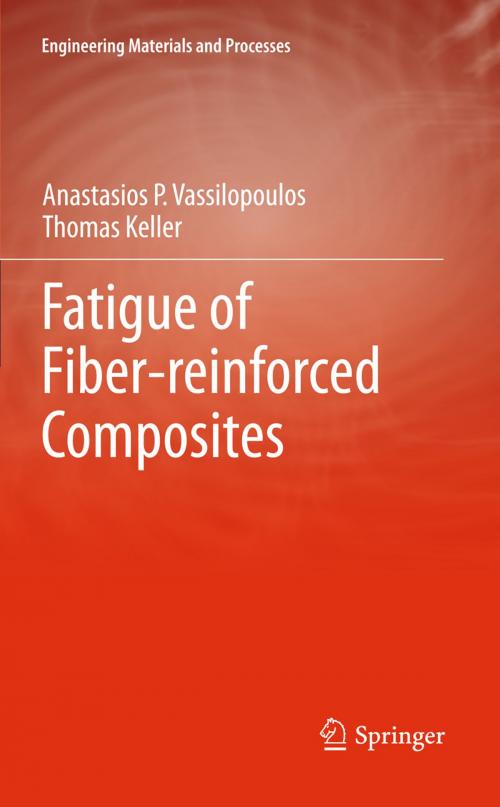Fatigue of Fiber-reinforced Composites
Nonfiction, Science & Nature, Technology, Material Science, Science, Physics, Mechanics| Author: | Anastasios P. Vassilopoulos, Thomas Keller | ISBN: | 9781849961813 |
| Publisher: | Springer London | Publication: | July 14, 2011 |
| Imprint: | Springer | Language: | English |
| Author: | Anastasios P. Vassilopoulos, Thomas Keller |
| ISBN: | 9781849961813 |
| Publisher: | Springer London |
| Publication: | July 14, 2011 |
| Imprint: | Springer |
| Language: | English |
Fatigue has long been recognized as a mechanism that can provoke catastrophic material failure in structural applications and researchers are now turning to the development of prediction tools in order to reduce the cost of determining design criteria for any new material. Fatigue of Fiber-reinforced Composites explains these highly scientific subjects in a simple yet thorough way.
Fatigue behavior of fiber-reinforced composite materials and structural components is described through the presentation of numerous experimental results. Many examples help the reader to visualize the failure modes of laminated composite materials and structural adhesively bonded joints. Theoretical models, based on these experimental data, are demonstrated and their capacity for fatigue life modeling and prediction is thoroughly assessed.
Fatigue of Fiber-reinforced Composites gives the reader the opportunity to learn about methods for modeling the fatigue behavior of fiber-reinforced composites, about statistical analysis of experimental data, and about theories for life prediction under loading patterns that produce multiaxial fatigue stress states. The authors combine these theories to establish a complete design process that is able to predict fatigue life of fiber-reinforced composites under multiaxial, variable amplitude stress states. A classic design methodology is presented for demonstration and theoretical predictions are compared to experimental data from typical material systems used in the wind turbine rotor blade industry.
Fatigue of Fiber-reinforced Composites also presents novel computational methods for modeling fatigue behavior of composite materials, such as artificial neural networks and genetic programming, as a promising alternative to the conventional methods. It is an ideal source of information for researchers and graduate students in mechanical engineering, civil engineering and materials science.
Fatigue has long been recognized as a mechanism that can provoke catastrophic material failure in structural applications and researchers are now turning to the development of prediction tools in order to reduce the cost of determining design criteria for any new material. Fatigue of Fiber-reinforced Composites explains these highly scientific subjects in a simple yet thorough way.
Fatigue behavior of fiber-reinforced composite materials and structural components is described through the presentation of numerous experimental results. Many examples help the reader to visualize the failure modes of laminated composite materials and structural adhesively bonded joints. Theoretical models, based on these experimental data, are demonstrated and their capacity for fatigue life modeling and prediction is thoroughly assessed.
Fatigue of Fiber-reinforced Composites gives the reader the opportunity to learn about methods for modeling the fatigue behavior of fiber-reinforced composites, about statistical analysis of experimental data, and about theories for life prediction under loading patterns that produce multiaxial fatigue stress states. The authors combine these theories to establish a complete design process that is able to predict fatigue life of fiber-reinforced composites under multiaxial, variable amplitude stress states. A classic design methodology is presented for demonstration and theoretical predictions are compared to experimental data from typical material systems used in the wind turbine rotor blade industry.
Fatigue of Fiber-reinforced Composites also presents novel computational methods for modeling fatigue behavior of composite materials, such as artificial neural networks and genetic programming, as a promising alternative to the conventional methods. It is an ideal source of information for researchers and graduate students in mechanical engineering, civil engineering and materials science.















